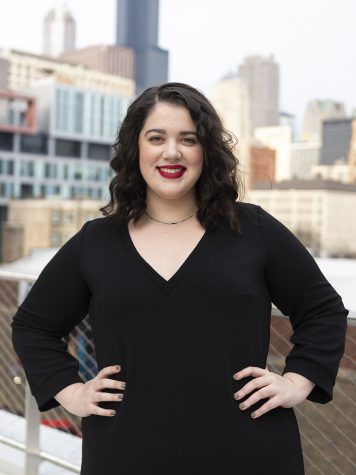Editor’s Note: Why I am not voting, but you should be
February 23, 2020

Editor-in-Chief
(312) 369-8834
In the coming weeks, I will not fill out an absentee ballot in the 2020 primaries. In early March, I will not head to the polls ahead of time. And on March 17, I will not wake up early to arrive at my voting precinct the moment it opens, fill out a ballot, put on an “I voted” sticker proudly and have breakfast at a greasy diner in celebration, as is my father’s voting tradition.
By now, you must be scratching your head in confusion or, if you’re like my mother, passionately informing me of all the reasons why I should be exercising my right to vote. Am I not the person who has routinely written editor’s notes every week for the past few months with the common theme of calling my generation to action? Am I not the person who criticizes passive activism? You are correct. I am. But for me, choosing not to vote in this election—and every election for the remainder of my journalistic career—is my own moral statement.
I, like many other journalists, choose not to vote in primary elections to refrain from real or perceived bias in my reporting. As someone who has regularly covered current 2020 presidential candidates—such as former Vice President Joe Biden; former South Bend, Indiana, Mayor Pete Buttigieg; and Sen. Elizabeth Warren (D-Mass.), as well as former 2020 candidates Sen. Kirsten Gillibrand (D-N.Y.) and former Colorado Governor John Hickenlooper—it has always been imperative to me that I remain unbiased in all interpretations.
According to a Thursday, Jan. 11, 2018, survey by Pew Research Center, 75% of people said it is never acceptable for a news organization to be biased toward one political party, and only 52% of people said news oultets are doing well at reporting on varying political issues fairly. What’s more, the media was rated highest for how well they cover important issues, but lowest for fair political coverage.
As someone who aims to cover politics in my post-graduate journalism career, this is unacceptable and warrants drastic action on the part of all journalists.
Although the candidate I may vote for is private in a primary election, the party I vote for is public information that can be found by anyone. What’s more, by walking into a polling place and stating my political affiliation, whether it be Republican, Democrat or independent, I am automatically putting a flashing neon sign above my head telling all readers that I am biased toward a particular party.
In that same vein, as a college reporter I would not vote in any Student Government Association election or participate in public forums about the college to avoid being perceived as having bias for or against different aspects and people at the school.
This is a small price to pay to ensure the work I do is as fair, objective and balanced as possible, with the sole mission of conveying important information to the public so it may elect the representatives it deems fit.
As former Executive Editor of The Washington Post Leonard Downie Jr. wrote in an online chat on the news site in 2004: “I decided to stop voting when I became the ultimate gatekeeper for what is published in the newspaper. I wanted to keep a completely open mind about everything we covered and not make a decision, even in my own mind or the privacy of the voting booth, about who should be president or mayor, for example.”
But make no mistake—I will always encourage non-journalists to participate in the democrtic process by exercising their right to vote. In fact, expect me to pester every person in my vicinity on Tuesday, March 17 about whether they’ve voted.
In the 2016 presidential primary, only 36.9% of people voted in Illinois, according to data by Vox. Many of those people, including some of my fellow classmates, had sit-out remorse when, a few months later, President Donald Trump was elected. So, no matter who you favor, don’t regret not voting after the fact. Get your “I voted” sticker and wear it proudly so I can cross my fingers that my reporting helped you feel confident in your vote.







